Text
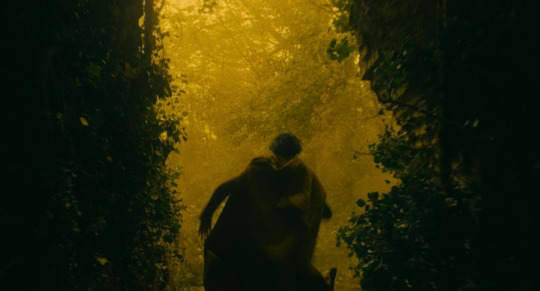

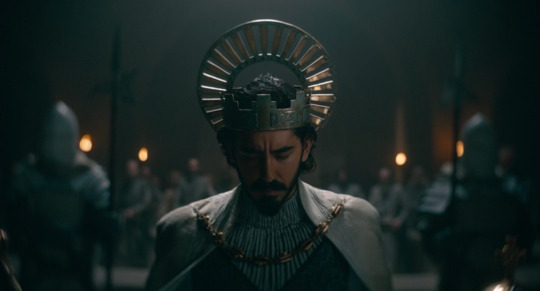

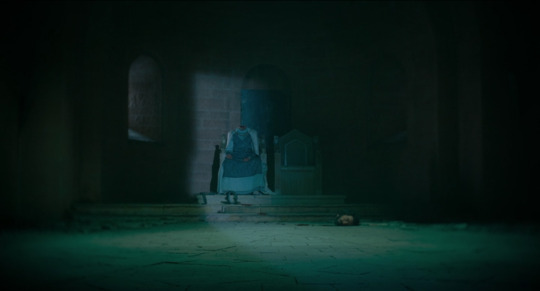

The Green Knight (2021) dir. David Lowery // Anne Carson
#then spoke the thunder: da. datta; what have we given? (the tower)#through my fabrics and skins the seeps of winter digested me. (arthur eld)#AAAAA SOOOOOOO NORMAL ABT THIS#....also hi everyone. did u know: doing a phd kills you dead
2K notes
·
View notes
Text
MY MOTHER HAD TO SEVER some part of herself to let me go. I have felt the wound ever since.
Jeanette Winterson, from Why Be Happy When You Could Be Normal
#there he would sing all their names. (musings)#shadows settle on the place that you left. (gabrielle)#:)#im fine!
1K notes
·
View notes
Text
“I was a boy – which meant I was a murderer of my childhood. & like all murderers, my god was stillness.”
— Ocean Vuong, from “The Bull”, Time is a Mother
354 notes
·
View notes
Text
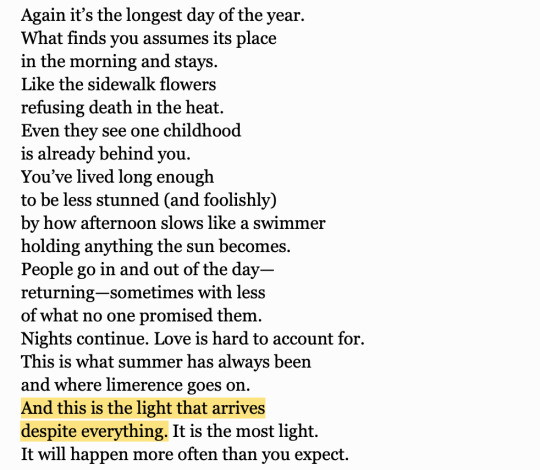
Alex Dimitrov, from Love and Other Poems; "Summer Solstice"
#thanks im dying#there he would sing all their names. (musings)#arc. good and wrecked and here and here and here. (the quest)#IIB –– CAM DINH.
4K notes
·
View notes
Text
cllgood.
He allows himself this––to grieve, violently, fully, to be sick with the fullness of it––and to seek a solitude to let it settle. He knows himself, knows it is needed; knows it isn’t over. He finds his solitude among the salt figures, those silent watchers on a hill that slopes west- and northwards, away from their camp, away from the sea, but like the figures Cuthbert’s gaze is eastbound, where the water crests against sharp cliffs and where their lives will end tomorrow.
The Good Man’s army has them surrounded, and the only reason they are still alive is because this land of old rolling hills allows for narrow gorges and tight spaces, enough so that a crafty band of veteran warriors can find the means and the ways to make their last stand a prideful, stubborn one. Or so Cuthbert thought.
Alain is dead, and to speak of pride in the wake of this is to spit on the face of his father.
But he must. He must, because Alain is dead and he is not, not yet, and if he can tomorrow he will find his death and his penance and his retribution.
Twelve thousand men, their spies reported. Cuthbert had laughed at that number, had not wanted to believe it, and then realized that he must believe it if their stand was to mean something. Twelve thousand men with weapons and machinery long thought gone from the face of this earth. Twelve thousand men and the sick-sweet stench of oil powering their tanks.
Against fifty.
Cuthbert runs a hand across his face, across his throat, where the phantom feel of a leather band and a rook skull dangling from it was strong enough, a moment ago, to impose upon him the grinning face of ka like the devil’s eye.
I stood alone on ground which kills and look the devil in the eye. It comes to him, unbidden, unwanted, that line from an old nursery rhyme––or was it poetry? He cannot remember; it is so long ago that he breathed the air of the City, where courtly words were spun and spoken––and he thinks he understands. Only he understands nothing, of course, because Alain’s death was his death, and whatever follows now is borrowed time.
He makes himself get up and get down the hill, alongside the sea, under the ageless, eroded eyes of the salt statues behind him.
Fifty. Their eyes are not tired now; but alert, hardened. Cuthbert snakes through the crowd that has formed around the medic’s tent, where he knows what he will find and yet cannot fathom that such a scene should ever have come to pass. He hears Ceridwen ask, “Roland, how?”, and he parts Thomas and Jamie, shoulder-to-shoulder, to pass by them and reclaim his spot by Roland’s side.
Roland who sits by Alain’s death-bed. That such a scene should ever have come to pass.
“It was my bullets.” It’s an answer to Ceridwen’s question but it’s Abebi who Cuthbert looks at. Abebi who has come up behind her daughter just about when Cuthbert came up to stand by his dinh. It’s Abebi who he looks at, black eyes to find the raging grief in hers. She is so like Kit, he thinks. “Will you kill me? I won’t resist death by your hands, sai. Not after this.”
She could, he thinks. She should. It is in her right. She was as much mother to this boy as she was companion to the boy’s father.
Abebi looks him over, hard eyes, hard eyes. And then says: “Nai.” It is not what she wants to say. To Robert Allgood’s boy. “We need every fighting man we got.”
Foolish woman. She still thinks they can win this. Brave woman. Or, Cuthbert thinks, she knows we can’t win this, and knows that tomorrow I will die at the hands of our enemies any’ro.
He wants to laugh. It bubbles up in him, madly, maddening, madness. He who killed his friend; he who has his brother’s blood on his hands.
Cuthbert thinks death would absolve him. Death, untranslatable word, word without other meaning, end-word, dead-word. Dead-word that rings too hollow. Word of bleaching bones. Word of unburied carcass. Word of engulfing silence.
He thinks death would wash the blood, clear the stain, unmake the bullet. Melt the gun into ploughs, find the meaning in the senselessness. But Abebi is right: exact, right, terrible, unyielding.
They need every man they can spare. Every burning, stinking body that will be abandoned for the vultures to devour. They need every rotting heart and every shit-filled gut. They need them all, to the last bloody drop: for from their bodies shall spring the singing roses.
Roland is silent in all this. The exchange is happening elsewhere, beyond the confines of his body, and so it is not his business. Not his cross to bear, for he has others already dragging him to the ground to his knees. Cuthbert may search for absolution. He knows it is well beyond his grasp. What death will come, what ending sentence, they will face on the slopes of this hill with a blood-red sea to drown the last of their proud people in. Their voice will not carry far. Here at the end of all things there is not enough breath to carry voices far.
He grabs a pail from the corner of the tent and walks to be beside the bed where Alain sleeps. He begins to clean the body and asks for no help in doing it, demands no presence. He is his dinh. He was his dinh. To the dinh the last rites: to the dinh the horror and the agony.
He cuts Alain’s shirt off. There is an audience of wretchedness all about them, all of them more ghosts than people, because this war has peeled from them the heart, the heart that was the most tender part, and has left this cacophony of skeletons that have forgotten their time died already much too long ago. The dead that do not know they’re dead always die slowest. And sometimes the world forgets to remind them they are dead to begin with.
He begins washing Alain the way Steven and Christopher washed Robert when they had returned from the wretched dust. Unlike his father he cannot stop the tears and they fall hard and they fall pained, ripped from his throat with the guttural violence of someone trying to suppress them. He feels Ceridwen’s eyes on him and he feels Abebi’s as well, all burning, and he doesn’t stop, not even to wipe at his face and his eyes and his mouth. He washes Alain’s chest of the blood from the bullets and pries out the ones he can with his fingers.
Ceridwen makes a sound in her throat and all of a sudden there is too much silence around them all. The crowd has been made to disperse, the flaps have been closed against the despair. In the tent now is only the broken tet and the sister and the not-mother. Roland’s hands are shaking but he must not stop. He strips Alain of his bloodied clothes and piles them in the corner. Jamie and Thomas stand transparent against the oil lamps, their soul against the orange light all bare for the veins to be seen. Unwilling to move to confront the truth, that this is death beyond all death, that this is the breaking that cannot be mended, the heart that cannot be restored. Roland continues washing the body until his hands shake too much to hold the sponge and he nearly drops the bucket of foaming, pink-red water.
Grief is a flayed body still breathing, standing in the middle of the tent, wearing Abebi’s shoulders like a cloak.
#cllgood#arc. take these scars upon my back. (youth)#verse. let this darkness be a bell tower. (the dark tower)#IIA –– DINH MAL.#have i EVER replied to something this quick? probably NOT. fhkejrghkrt#long post //
13 notes
·
View notes
Text
“Perhaps in the world’s destruction it would be possible at last to see how it was made. Oceans, mountains. The ponderous counterspectacle of things ceasing to be. The sweeping waste, hydroptic and coldly secular. The silence.”
— Cormac McCarthy, The Road
#the wind crosses the brown land; unheard. the nymphs are departed. (midworld)#cormaccc turn your fucking location on i just want to TALK
370 notes
·
View notes
Photo
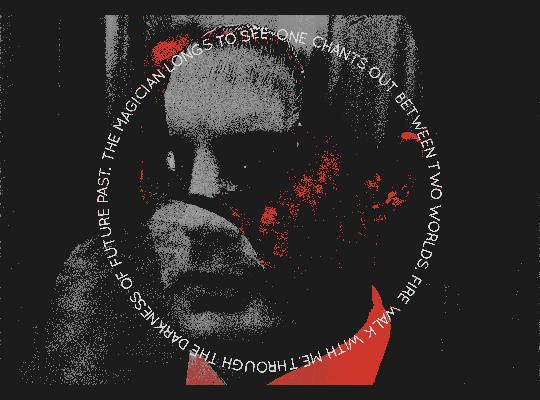
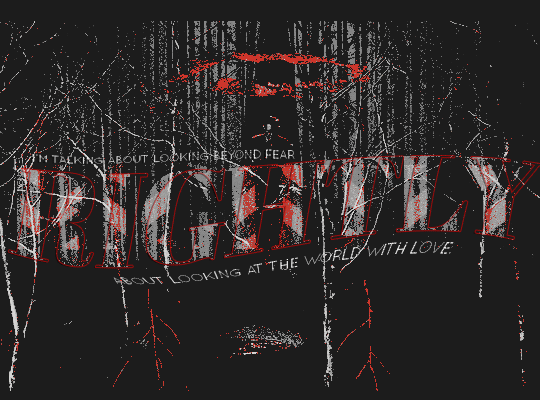
i have no idea where this will lead us, but i have a definite feeling it will be a place both wonderful and strange. special agent dale cooper of twin peaks. series, book, and headcanon-based. a study of that which lies beyond, what it means to believe in the impossible, and love in the face of fear. created 04/21, revamped 04/22. a damn good reimagining by kendall.
24 notes
·
View notes
Text
#if we're not supposed to dance; why all this music? (soundtrack)#when i tell yall i SCREAMED.#they havent released anything new in [checks notes] TWELVE YEARS
10 notes
·
View notes
Photo

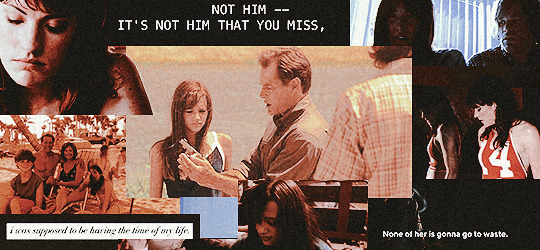

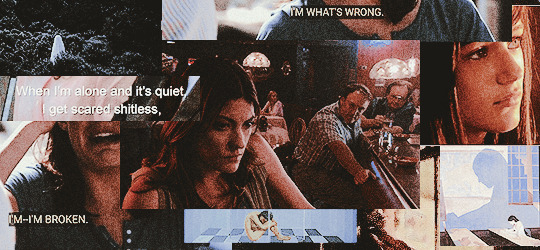

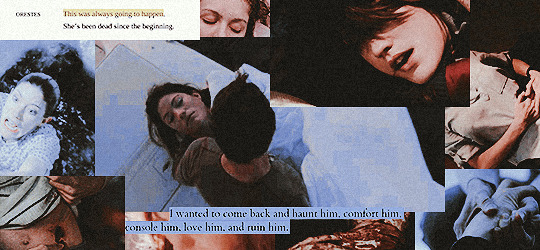

i wake up every day thinking about every bad decision that i ever made because of you. and it kills me that i can’t take any of it back. #defensiveness. debra morgan of showtime’s dexter. headcanon-influenced and series-based. ft. themes of isolation, life in the quiet, death of a childhood, and a haunting of love. by kendall.
10 notes
·
View notes
Note
‘ i want to know it was worth it. my dying will be easier if i see what i died to do. ’ / from gabby : )
Animal unmoored. Unchained from meaning. Bereft of heart, heart drowned in blood. The beast of his undoing yoked to him, incapable of beating for itself.
In the darkest moments in the desert the back of her head is always to him. She stands by the road and the back of her head is always to him. She stands at the foot of the inn hallway and the back of her head is always to him.
Too slow and he can't reach her, too fast and he can't bear the thought of looking at her face.
In his father's dreams she screamed with her eyes white. For him her body is facing him and her head is turned away. Her dress on upright as if her forehead wasn't twisted. Her chest. Her belly. Blossomed red with four bullets.
He did that. He did. Orestes on his way to Athens couldn't walk a mile in his dusty boots. Couldn't hold a candle to a thousand years of penance.
He made his own Eumenides. He lined them in a row and then they chased him as he chased. And the wheel turned. And the world burned.
But the back of her head is always to him. Facing the wrong way. Her braids jewelled like when they buried her. On, backwards. Her head on backwards.
She stands. She does not walk and does not see and she stands. Like dust she is summoned by the wind to trace the magic of its own death in the light, the radioactive dust and the choking wind. The world lost a little bit of meaning when it lost her.
He did not know it then but knows it now.
Too fast and he can't reach her. Too slow and he can't bear the thought of looking at her face.
She hardly speaks. The others do. Cuthbert is a cacophony or litany (it changes by the day) and in his father's low rumble he hears the gunslinger's prayer, stark emblazoned in the space between his forehead and his mind's eye. So many voices.
So many dead.
Tonight she stands on the other side of the muddy street. Because this isn't a town (undeserving of that name), this is a street with a few houses. A vicious creature parades to and fro, sinking in the mud as it trundles: it's hope.
Not his but the town's. A harvest is come, and it came briefly and dry and diseased, but it was more than the year before, if whatever regurgitation of time can be defined as such, now that time is loose skin wrapped around the bleaching bones of the world, and so the town celebrates. It has not seen rain in over three months and it celebrates.
Whatever grew, grew from rot.
In the ante-desert, life found a stubborn way to survive. His own had kicked and screamed until he caved and dragged it on. But it found its way, because it still did not know that the desert was encroaching. As an animal in darkness you cannot see but only hear: so the desert was coming. And it had no mercy.
She stands caught in the half-shadow of the celebratory bonfires (they opened the night as a maw shows you teeth, yawning its hunger) and did not move. She never did.
When he comes inside after stubbing out his cigarette, she is reflected in the cracked mirror over the bar.
The gunslinger asks for a whisky. He pays with the real gold and his great guns are enough to keep people from wanting more.
He received news that Gilead had fallen two years ago. Again, and this time for-ever. The puppet government had cannibalised itself, and Farson had been skinned by his own men.
Rudin Filaro was long gone by then. And Edoacer Grissom had died of fever the winter before. And with their bones snapped the legend had returned, as slow as a trickle of water drips from a drowned man's mouth, and had settled as an uncomfortable truth. Guns were rare. Those who had them were not to be trifled with. Those who had them had died and come alive again.
He downs the whisky and thinks against ordering another. It's barely a whisky, more a swill, and it burms deep in his chest. A vise. He sucks on his teeth.
He orders a second. And a third. By the time he has to piss, the boy behind the bar has aked him if he will bring him upstairs and he knows he will: because in his body is where others find the answer to their loneliness.
He has no loneliness to feed. He has no heart, he's unmade his. Their bodies ask, and he replies. And then they ask him to stay. And he never stays. And he cannot stay.
She stands at the foot of the bed while the boy dozes and the cool air wafts through the window. The smell of wood as it burns. The sound of an out-of-tune fiddle.
The back of her head is always to him. He thinks he hears her question in his head. He knows he has no answers left to give.
3 notes
·
View notes
Photo

Mahmoud Darwish, from Memory for Forgetfulness: August, Beirut, 1982 (tr. Ibrahim Muhawi)
21K notes
·
View notes
Photo
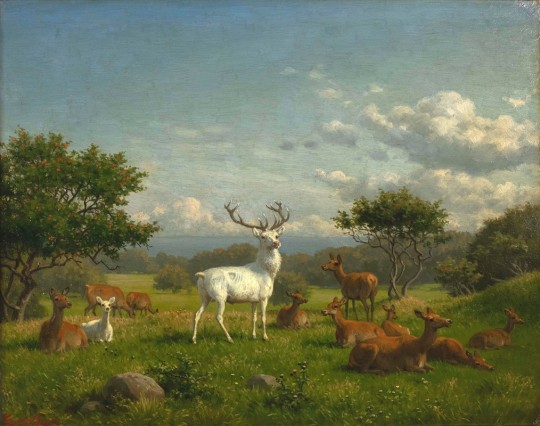
Carl Bøgh (1827-1892)
702 notes
·
View notes
Text
cllgood.
There is no sense to this. Ka speaks and the world moves on, he was taught, and sometimes, cully, you end up beneath the wheel. It’s caught up with him now: ka-mai that he is, dancing on the edge, a slip, a tumble, a bullet, a death.
Only it’s more than one bullet. Only it’s more than one death.
This is the continuation of the end: they wrapped their lives around each other so thoroughly, so completely, that when the dagger took the last of Alain’s it took a part of theirs also.
Roland’s dagger. Roland’s mercy.
Roland who functions now with all the cold precision he was tempered with, in a way that Cuthbert never truly had. Who speaks of what to do and what to say, in a way that Cuthbert never thought he would lack words.
Because he never thought that this would transpire.
And around his neck, the lookout a grinning terror, the lookout that was once a token around a knight’s neck, the lookout that made Gwalchmei the Fool Gwalchmei the Adventurer, Gwalchmei the Hero.
Never once in the stories was he Gwalchmei the Executioner, except in the one: a tale older than the one o’ the garter, the knight and the rook; although there was a beheading in that ancient and forgotten tale also. And Gwalchmei, young and eager, a page boy not unlike a ‘prentice of the gun come the next generation, caught in a skirmish, his blood and blade to wet – only the bandit was quicker still than this green jack, and when the bandit’s lady took his place to plead her love and a knight’s mercy, it was a page boy’s untrained hand that delivered an unstoppable blow to her neck.
‘By accident’ was not a phrase that lend itself to legends and stories of yore.
Penance, then: no blade and no place at the round table for Gwalchmei the Executioner; just a rook skull hung around his neck for all to see, for all to take judgement.
For someone to bear witness.
Cuthbert knows the footsteps behind them are Jamie’s by the rhythm that they make against the soil. This is what it is to be under the umbrella of true ka-tet, too; and for the final time, the four of them have come together to tread the waters of its khef.
Alain’s eyes glassy and lifeless before Roland closed them.
That wheezing, sucking sound that his lungs made before they collapsed.
Jamie stops. Bert cannot bring himself to turn around. He has staggered to his feet after Roland called to him; but he cannot bring himself to touch Alain, either.
He cannot. Cannot.
Cannot–
He meets Roland’s gaze. “I- I-”
It won’t matter. This once, a ka-mai’s tongue deserts him. He blinks, and the world is a blur. He hears Alain straining to suck in a last rattling breath. He turns on his heel, then, and takes to the eroded expanse of the hills, where the salt figures stood silent watch over what had transpired.
Gwalchmei the Executioner. Gwalchmei the Shamed. Gwalchmei the Coward.
Behind him, Jamie finally lets out his wail of grief.
Cuthbert runs with his back turned to the agony and his pain staggering, and Roland’s thought is first that he will have to bury ‘Lain alone. His second is to Jamie, wailing like an orphaned cub, and only in the third does his grief blossom. The sudden reality red like the sunset that’s ended and the dawn that’s beginning: red like the dagger, red like the fury, red like the blood of his decapitated father. Red. Red. Red: all things ending in red.
Alain’s body weighs too light. It does not betray the vastness of the heart it holds. Held.
Holds, still, in the memories of those who loved him.
It is thinking of what he will tell Ceridwen that unmakes that last guttural sob. The air bubbles rose in Alain’s bloodstream as he died, pressed past the holes in his sternum and diaphragm to poison the night ending into dawn. Roland’s grief bubbles the same. But here he is not dying. Here he is alive and must live with the grief and he is therefore alive only in name because he is only a vessel, a prison for all of his ghosts.
His grip on Alain tightens and the weight grows no less difficult to bear. It is all his heart. It is weighed by the memories, and love has turned the very bones to lead. Unmasked, all that is left is the love is the pain in that sudden agony of a mistake. “By accident” is hollow: it is by ka that the world is broken and then remade.
His hands cling to Alain’s shirt. He holds him like a father holds his newborn child, fast asleep in one’s arms, too careful to wake him, too large to hurt him. He carries him back to camp, as it rises into the morning mist and greets a final day. The din of activity quiets down as he crosses the threadbare tents that are left: a grief so big it swallows every sound.
But it was waiting. The gunshots were sharp sound, thundercrack. They had split their way in the haze of this early morning. They had all heard. And they had waited for the answer.
Now the answer walks.
Someone muffles a yell. Someone says something, but most of it is a roll of whispers, chasing after each other as he crosses his people with the penitent’s gait. He reaches the medic’s tent. Here they will bathe and clean what was Alain. Here they will make it ready for the Clearing he has already gone to and bury it in a field facing towards the city. Towards where they think the city is. Towards the West or where the West was before directions slipped off the axis of the earth like flesh off bone.
It broke with the Beamquake. He’s tried to put the pieces back together ever since, and now his hands are sticky with the blood of Midworld. What good came of it?
Ceridwen pushes her way to the front of the crowd. Her face is drawn, traced all around a pain become her, as she sees her brother dead in his dinh’s arms and has to look again to know it. Her jaw trembles. In his rigor mortis Roland has to pry Alain’s hands off of him while he lays him down in a free cot.
“How?” he hears her ask. Hoarse with grief. He touches Alain’s cheek and stains it red with Alain’s blood.
“Roland, how?”
#cllgood#verse. let this darkness be a bell tower. (the dark tower)#arc. take these scars upon my back. (youth)#IB –– CHAR DINH.
13 notes
·
View notes
Text
BEOWULF: A NEW TRANSLATION SENTENCE STARTERS
taken from maria dahvana headly’s translation of beowulf. feel free to change pronouns, etc.
‘ tell me we still know how to speak of kings. ’
‘ everyone knows what men are: brave, bold, glory-bound. ’
‘ i spent my youth fists up. ’
‘ a boy can’t daddy until his daddy’s dead. ’
‘ privilege is the way men prime power, the world over. ’
‘ even ghosts must be fitted to fight. ’
‘ we’ll mourn the way men do. ’
‘ it was asking for burning, but that hadn’t happened yet. ’
‘ every castle wants invading, and every family has enemies born within it. ’
‘ there are prayers to call out, and pains to bear. ’
‘ a hellion’s home is anywhere good men fear to tread. ’
‘ is it true that something savage walks at night? ’
‘ i know the difference between words and deeds, as anyone with half a brain does. ’
‘ horrors happen. i’m grown, i know it. fate can fuck you up. ’
‘ i heard no one could convince you of clarity. ’
‘ well, actually, buddy, sit down, you’re drunk. ’
‘ i knew my duty. ’
‘ you know how it goes: god’s the final decider, and men only the question-askers, students seeking solace. ’
‘ only yesterday, i thought my heart would never be mended. ’
‘ anyone who lives long will endure both ecstasy and ugliness. ’
‘ fire comes from the same family as famine. it can feast, unfulfilled, forever. ’
‘ any season is a season for blood, if you look at it in the right light. ’
‘ if you want to win, you have to forget you’re afraid to die. ’
‘ no one knows the name of the lost soul who’d interred those spoils long ago, burying the grave goods of a wealthy race. death had snatched them all into a sack and lifted them out of existence, leaving only one. ’
‘ we existed; now we’re extinct. ’
‘ we all know stories like this one: a man unmarked by fate may sometimes cloak himself in god’s grace, passing close to monsters, unbeheld. ’
‘ that trust will turn to dust, like everything. ’
‘ stricken, suddenly unsteady, i foresaw my fate in the fog, shrouded but certain. ’
‘ i lived whole lives in my youth. i remember every moment, even now. ’
‘ there was no way to mourn him, no vengeance to be had, for what could mitigate the blame? who was left to shame for this heart-thieving? nobody. ’
‘ no settlement in silver can buy a child back from the gods of air. ’
‘ i’m not dead yet. i’ll lead while taking my last breath. ’
‘ you won’t be bested while your heart beats. ’
‘ your fame won’t diminish. your history’s here. ’
‘ i want to know it was worth it. my dying will be easier if i see what i died to do. ’
‘ living has killed us all. we’re dustbinned by destiny. ’
‘ at least i, alone among these ranks, tried. ’
‘ now is a time for mourning, for walking, downcast, the exile’s road, gray-garbed and grim. ’
‘ maybe a man’s mighty, maybe he’s known to all as a warrior, but death has his number. no one knows when it’ll be called. ’
‘ no man knows, not me, not you, how to get to goodbye. ’
45 notes
·
View notes
Text
I don't even know my face anymore.
I'm going to let babylon fall.
— babylon fall by nina kaiser
#and on the king my father's death before him. (steven)#and i've seen your flag on the marble arch; your love is not a victory march. (& steven)#there he would sing all their names. (musings)
6 notes
·
View notes
Text
“From where does poetry come? From the heart’s intelligence from a hunch about the unknown or from a rose in the desert?”
— Mahmoud Darwish, from ‘Mural’, Mural (trans. John Berger & Rema Hammami)
977 notes
·
View notes
Quote
That which can be named must exist. That which is named can be written. That which is written shall be remembered. That which is
remembered lives.
from “The Return”, The Awakening of Osiris: A New Translation of the Egyptian Book of the Dead (trans. Normandi Ellis)
440 notes
·
View notes